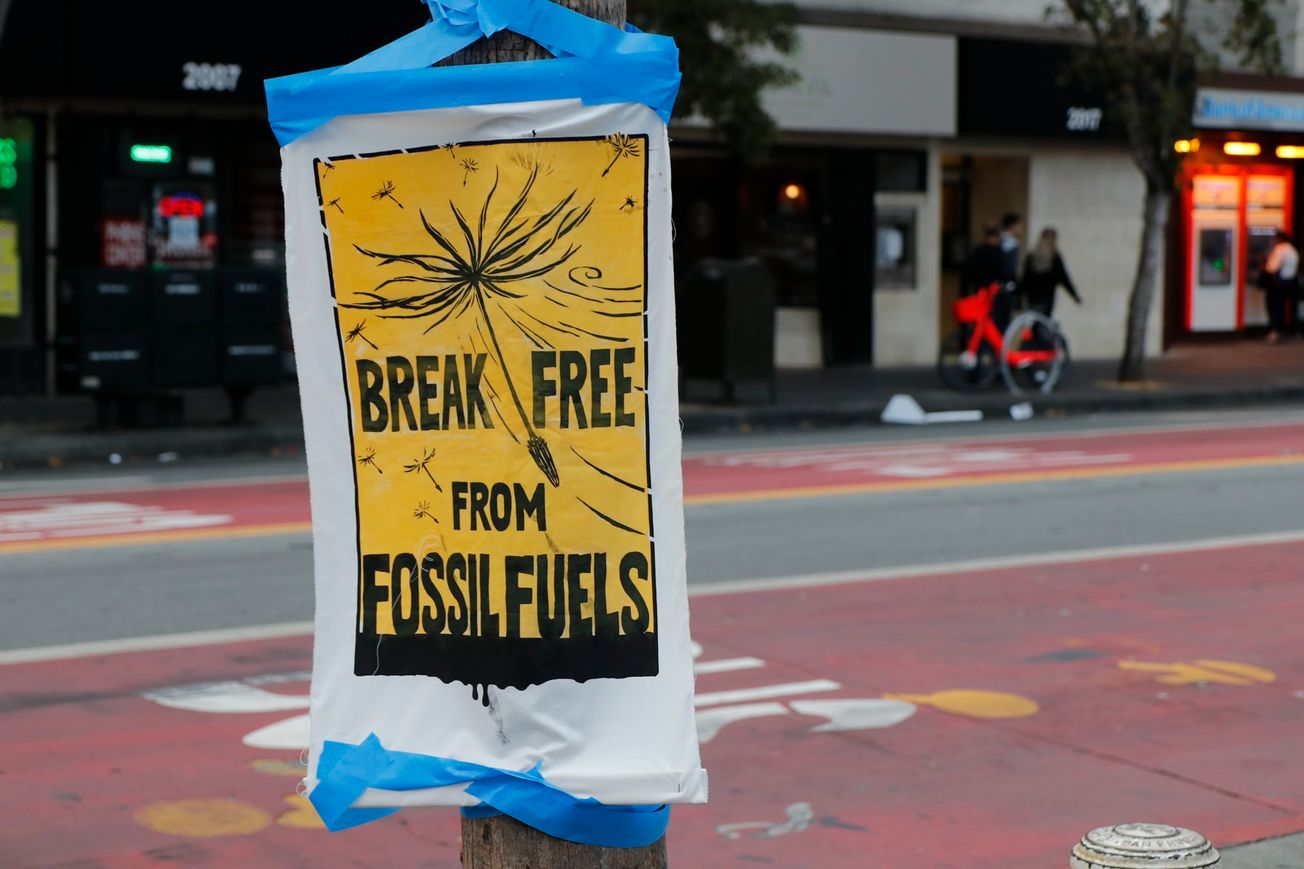By Dr Neil Davies, Senior Research Fellow, Bristol Medical School
How would you like it if you were forced to pay around £1000 every month to an organisation that uses your money to fund fossil fuel companies that are destroying the planet? What would you do? Boycott it? Protest? Take legal action?
Many university staff find themselves in this situation. The University Superannuation Scheme (USS) provides pensions for university staff. Each month staff pay around 10% of their wages, and the university contributes around 20% of their wages to the fund.
The USS then takes this cash and invests on behalf of scheme members from across the UK. The fund has around £90bn of investments and has invested in fossil fuel companies such as Shell, India's Reliance industries and Brazil's Petrobras.
Increase the pressure on USS to divest- currently they have over £ 1 billion in fossil fuels and only vague slow plans for ‘net zero’. Use the link to get your message across to the trustees and share with others. Thanks #USSdivest #makemymoneymatter https://t.co/Z4wgNV0Dih
— Divest USS (@DivestUSS) January 21, 2022
We don't know how much the USS invests in fossil fuel companies or the greenhouse gas emissions from its investments. The USS does not publish this information and has not had reliable estimates of the emissions of its investments.
Indeed, the USS has only recently attempted to estimate the greenhouse gas emissions of its investments. To be fair to the USS, this is lightning quick by their standards. For example, the USS already has a policy to divest from tobacco manufacturers.
Unfortunately, they only made this policy in 2020; by then, it had been 60 years since researchers robustly linked cigarettes with lung cancer and heart disease.
The University of Bristol has officially divested from fossil fuels 🎉
— UoB Green Labs (@UoBGreenLabs) March 4, 2020
It is hoped that USS will also divest from fossil fuels (of which it has currently invest £1bn).
This is great news and we encourage other institutions to follow suite!https://t.co/9BjQdafP92
Why does the USS insist they need to keep their members' pensions in fossil fuel companies?
The USS makes three arguments as to why they need to keep investing their members' pensions in fossil fuel companies.
First, they argue that their primary legal duty is to ensure that they can pay the pensions that people have earned to date. So if not investing in fossil fuel companies lowers financial returns, they could breach their legal duties towards members by not investing in them.
However, fossil fuel companies have been one of the worst-performing sectors in recent years. These returns are not surprising; why would anyone want to own a company that is unlikely to exist in its current form in 28 years?
If we don't destroy the planet, many others will. Brilliant.
Any excess short term return from investing in these firms is likely to reflect the risks associated with owning companies operating in a sector that needs to cease to exist if humanity is to overcome climate change.
Furthermore, returns for these firms are likely to continue to weaken over time as policies to address climate get stronger (e.g. sin taxes such as carbon and windfall taxes).
Second, the USS defends investing their members' money in fossil fuel companies by arguing that they're responsible investors trying to change these companies from the inside. There is a minor issue with this argument: the USS, while big, typically only owns a microscopic proportion of each company (e.g. in recent years, the USS hasn't owned more than 1% of Shell).

Thus it's unlikely to have much meaningful influence. Moreover, the USS has not always been that successful at changing fossil fuel companies from the inside. For example, in the past, the USS has invested tens of millions of pounds of members' money in a corrupt Brazilian oil firm, only to sue the firm once the corruption came to light.
A responsible investment strategy would only be credible if USS publishes hard evidence about how it is getting fossil fuel companies to divest.
Third, the USS defends investing their members' money in fossil fuel companies by arguing that someone will own them anyway thus selling the shares will make no difference.
Bristol SU becomes first in the country to boycott oil, gas, and mining recruitment. https://t.co/BKV018JDbD
— Epigram (@EpigramPaper) December 10, 2021
I know what you're thinking; you may have heard this argument before. My five-year-old son (who I love dearly) employs this argument frequently.
For example, I only hit my brother because he was hitting me; I only flooded the bathroom because my brother would have done it anyway, and I only cleaned my room because my brother was about to do it (I wish).
Indeed, were the Royal African Company still around and its activities still legal, this argument would justify investing in slaving. If we don't destroy the planet, many others will. Brilliant.
What would you do? Boycott it? Protest? Take legal action?
Do university staff know they are investing in fossil fuel companies?
Likely most university staff do not know that they're investing in fossil fuel companies. Even if they did know, is there anything they could do? Staff could boycott the scheme, but the universities are forced to only use the USS, and cannot contribute to any other pension schemes.
So members who boycott the scheme are likely to lose 20% of their pay and make themselves £100,000s worse off by retirement. They could protest and complain, but there is no effective way for members to hold the people who run the USS to account within the USS rules.
For example, since 2014, member satisfaction in the USS has collapsed from around 70% to 30%. Yet, the executives that run the scheme have not been held to account for their performance. Thus it's unclear how responsive the USS will be to complaints.
Nevertheless, a group called USSdivest has doggedly pursued a campaign to force the USS to divest from fossil fuels. Finally, members could take legal action against the people who run the scheme on their behalf. We are trying this, but legal action takes many years and is very expensive.
So USS finally looks like it's making a positive move in divesting some of its holdings in fossil fuels - at last an attempt to ensure the pensions of FE and university staff are not financing climate chaos https://t.co/P9WPW7F3ES
— Platform (@PlatformLondon) January 24, 2022
What's the cause of all these troubles, and what can we do?
These are all symptoms of an underlying disease that afflicts the USS - a lack of accountability and poor governance. The people who ultimately benefit from the scheme have no say in the scheme's running. A board of 12 directors oversee the USS.
The University and College Union (UCU) appoints three directors. Universities UK (UUK), the employer representative, appoints four. While the board itself appoints a further five “independent” directors. Once appointed, there is no way to remove directors within the scheme rules, and the 400,000 members have no direct say in who is appointed.
Thus the USS needs urgent governance reform so that members can have a say over the running of the scheme and can hold the people who run the scheme on their behalf to account.

More immediately, over the next few months, the USS will be consulting on what it calls its Statement of Investment Principles (SIP - everyone loves abbreviations, right?). This document will outline how the USS will invest over the next few years.
Employers will be able to respond to a UUK consultation; this may be a valuable opportunity for our universities to change the USS for the better and end, once and for all, its investments in fossil fuel companies.
Finally, talk to your lecturers and professors - do they know they're investing in fossil fuel companies? Do they care? Do they want to do something about it?
Featured Image: Unsplash | Eelco Böhtlingk
What are your thoughts on the upcoming strikes and USS investment in fossil fuels? Let us know @EpigramOpinion on Twitter or @Epigram on Facebook!
Interested in writing for the section? Follow us on @EpigramOpinion on Facebook.









